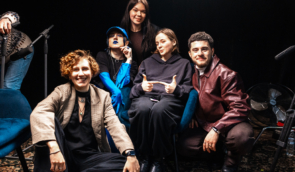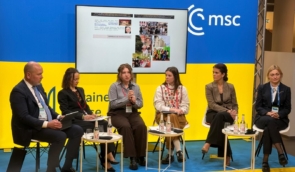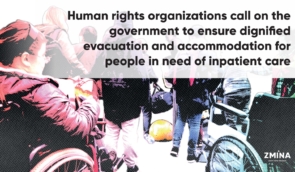The international conference Crimea Global has concluded. Highlights of the Second Day
November 22 was the last day of the Conference, which brought together representatives from different countries in Asia, Africa and Latin America. Their goal is to share the experience of their own countries, to tell how their fellow citizens perceive Ukraine and how Ukrainians can win the sympathy of the residents of these regions to their side. After all, Russia is actively propagandising in the countries of the so-called “South”.
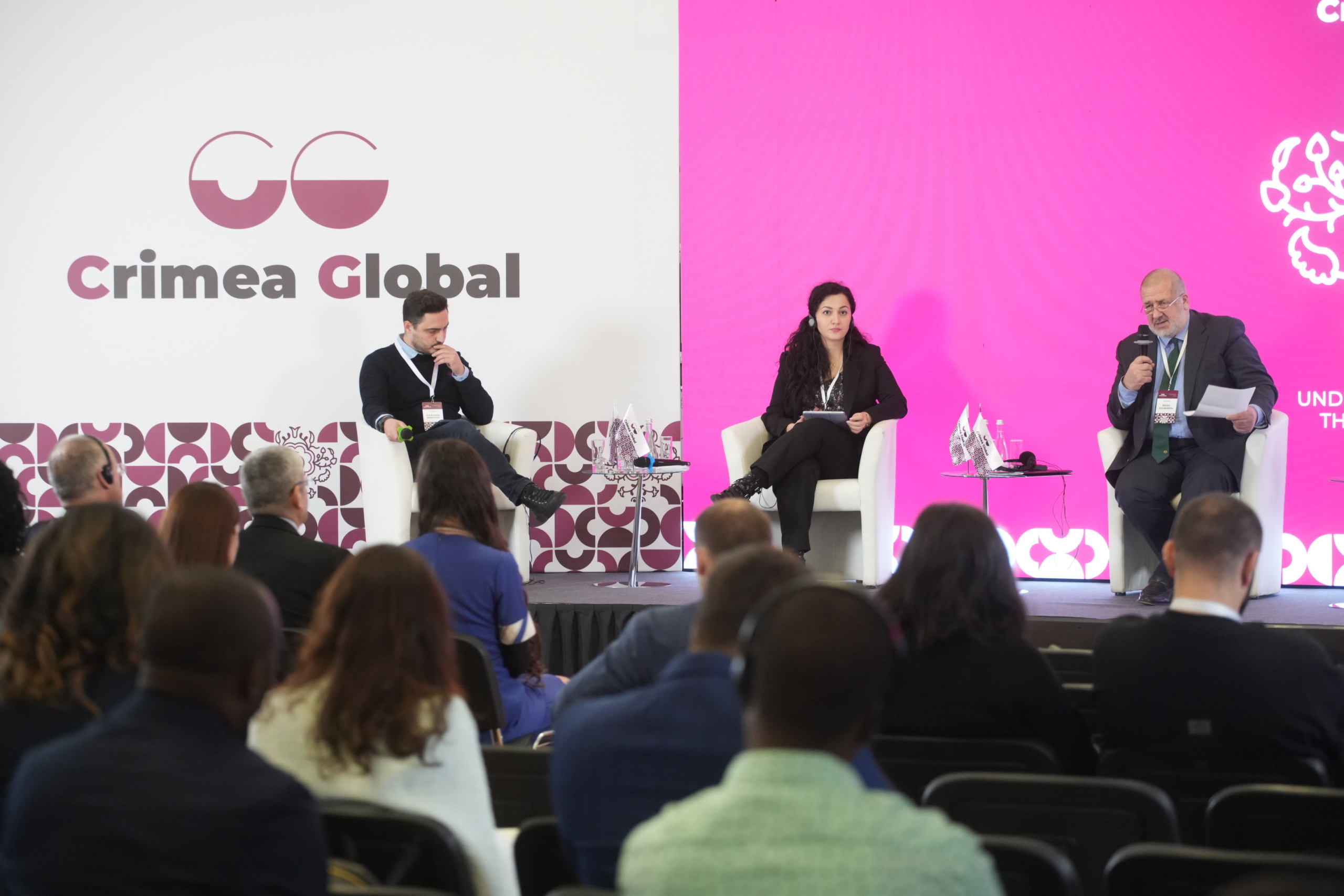
Indigenous peoples
During the panel discussion “Challenges for the indigenous peoples worldwide: can we build solidarity and achieve justice?” Refat Chubarov, Head of the Mejlis of the Crimean Tatar People, noted that “The main challenge for the Crimean Tatars is the seizure of their land by the Russian enemy, which has been exterminating our people for decades.” Mohammed Hassan, Executive Director of the Darfur Network For Human Rights (Sudan), spoke about the experience of his compatriots whose rights are also being violated: “Around the world, indigenous peoples are still marginalised. We need accountability for ethnic crimes. And we need to ensure the participation of indigenous peoples in the process of convicting perpetrators. And we need to ensure rehabilitation and reparations for indigenous peoples. Darfur has been at war since 2003, and for 21 years we have been living in refugee camps, where there is no education, no medicine, no food. For 20 years, people have not been able to return to their tribal lands.“
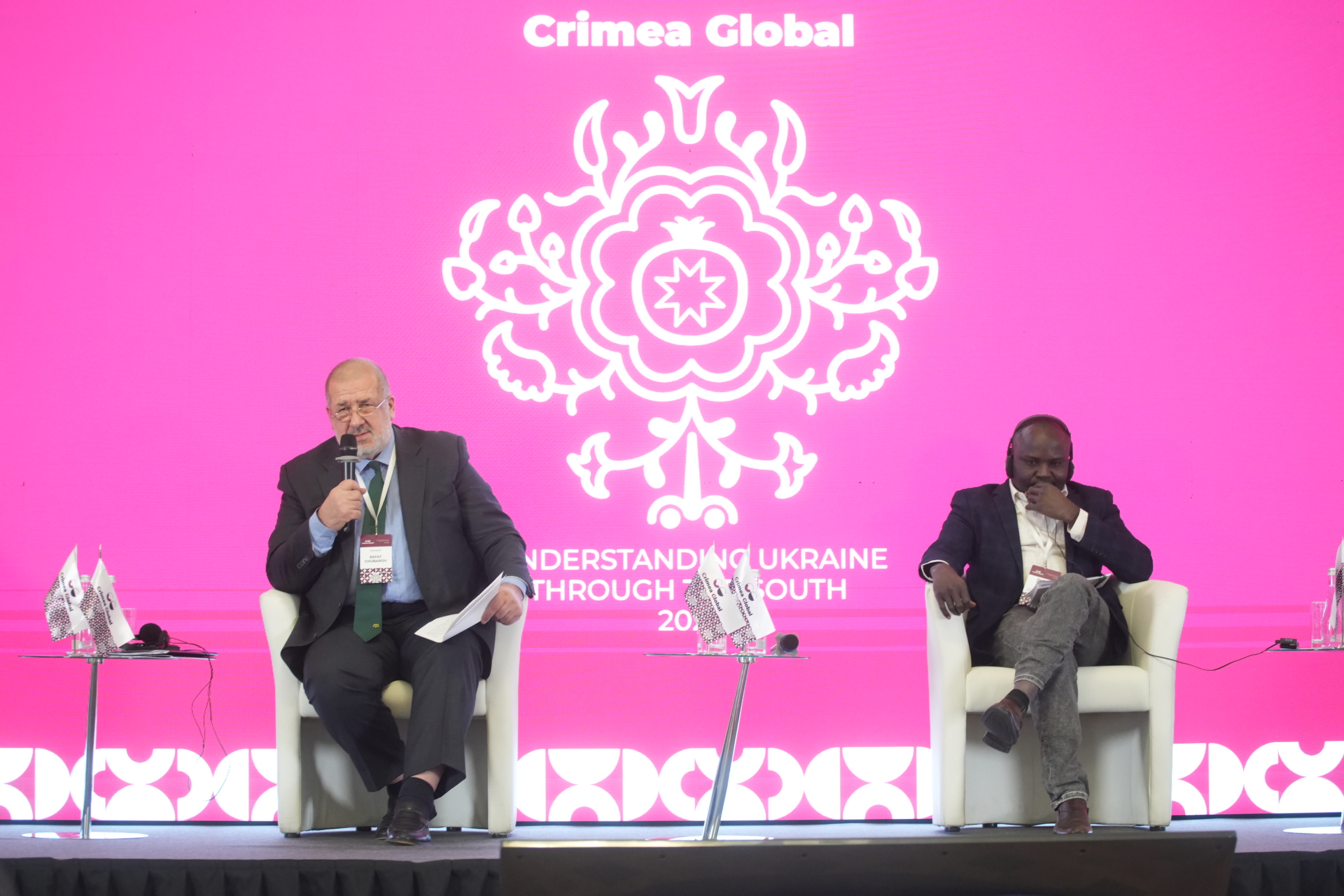
“It is very important to document everything that happens to indigenous peoples and the path they are going through. With evidence of crimes against indigenous people, we are trying to reach out to the international community and get support from it,” added Natia Navruzov, Executive Director of NGO Yazda, a lawyer and representative of the Yazidi people from Iraq.
Economics
The participants of the panel discussion “Development of Economic Ties between Ukraine and the Countries of Asia, Africa and Latin America” spoke about the economics. Fernanda Mahnotta from Brazil, Coordinator of the International Relations Programme at FAAP, Senior Fellow at CEBRI, Fellow at the Wilson Center, and CNN Brazil analyst, said that she believes that Ukraine and Brazil have a lot in common: “Ukraine and other countries in our region are also united by the fact that we are faced with the need to manage the development of our countries while having a strong external impact.“
“When we look at Ukraine and the countries of Asia, Africa and Latin America, we can confidently say that the export of Ukrainian grain and agricultural products to developing countries is very important. Brazil can share its experience in this area,” added Mahnotta.
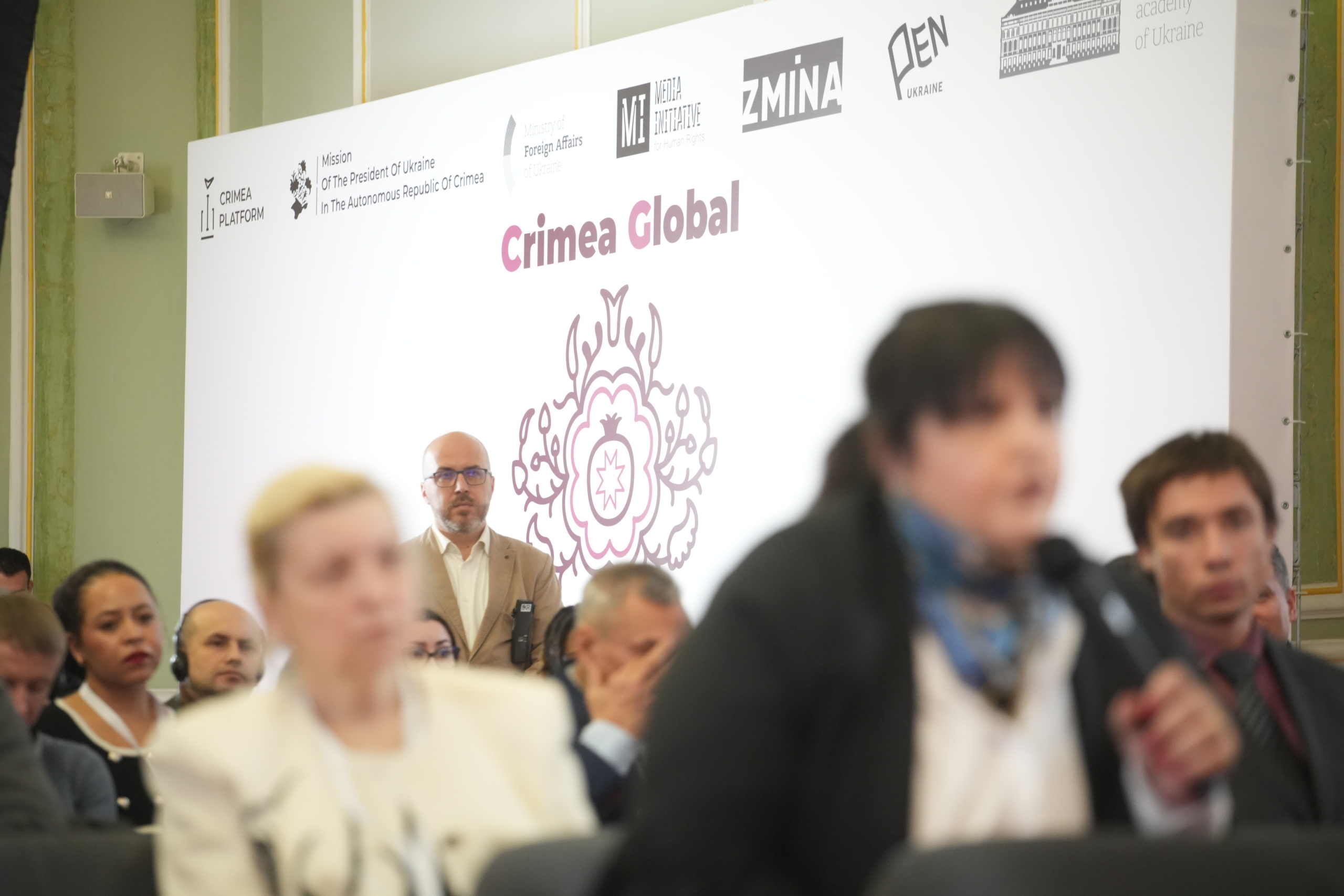
“We have to understand that in some sectors we are competitors, but competition does not always mean fighting, competition also means opportunities“, said Norton Rapesta, Brazilian Ambassador to Ukraine from 2021 to 2024.
Propaganda
However, economic ties cannot be established without overcoming the influence of Russian propaganda, the participants in the discussion on this topic concluded.
The participants were: Alim Aliiev, Deputy Director of the Ukrainian Institute; Uriã Fancelli, International Political Analyst and writer, Political Commentator for CNN Portugal from Brazil; Hannia Novell, Mexican Journalist for El Tepeyac, Claustro de Sor Juana, Del Valle de México and documentary film producer; Brian Oruta, senior digital reporter at the Star newspaper from Kenya; Dr. Swasti Rao, Research Fellow at the Centre for Europe and Eurasia at the Institute for Defence Studies and Analyses, USA; and Manohar Parrikar from India; Thierno Amadou Camara from Guinea, Publishing Director of Guinée114, author of a book on Russia’s war against Ukraine; and Raymond Akwa from Ghana, Research Director at Multimedia Group Limited. The event was moderated by Tetiana Pechonchyk, Head of the Board of the Human Rights Centre ZMINA.
Before the discussion, Oleksandr Korniienko, First Deputy Chairman of the Verkhovna Rada of Ukraine, spoke via video: “It is important for us to establish and strengthen ties, in particular at the inter-parliamentary level, with non-Western countries. We have launched a new strategy and are ready to continue it. I am grateful that the attention to our country is maintained and the world is ready to know the truth.“
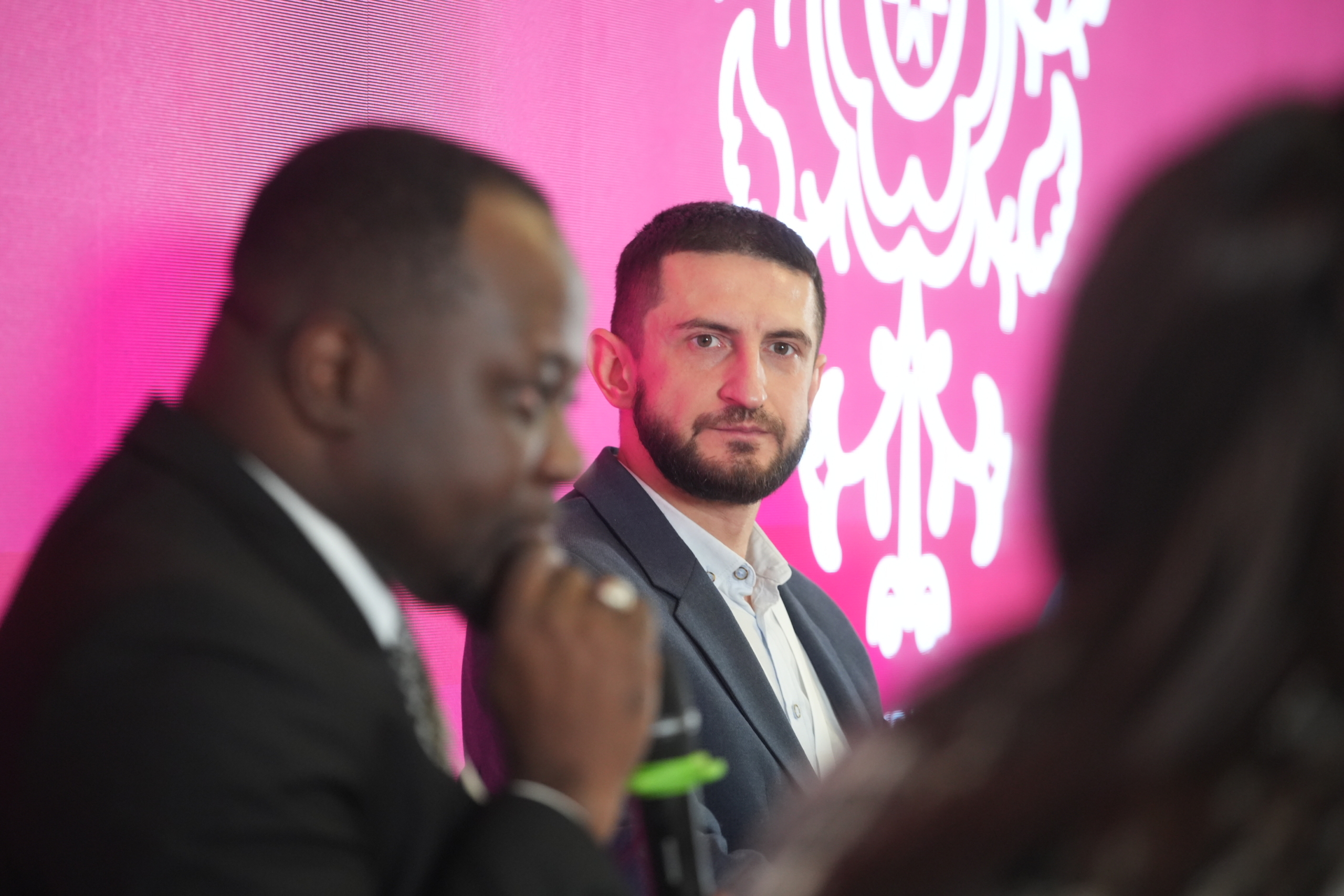
Alim Aliiev said that he believes that personal and artistic bridges between countries are important. “We have to build bridges between us and other countries. We are already doing something similar on our part, such as cultural co-operations. The artist Sasha Korban collaborates with the Brazilian Eduardo Kobra, and they create projects on the topic of ecology. The topic of ecocide is very important to us. Another project we have with Indonesian artists is about indigenous peoples and the deportation of children, a topic that is also close to the people of Indonesia. Human stories about the current events in Ukraine draw attention to us. Artistic campaigns help foreigners better understand our life“.
Tetiana Pechonchyk, who moderated the panel, agreed that the lack of information distorts the perception of Ukraine and Crimea in particular. “When I travelled to the countries in the regions mentioned above, I asked the locals who they thought were the indigenous people of Crimea. And, unfortunately, most of them answered that they were “Russians”. Indeed, it is very important to inform foreigners about Ukraine and its history.“
Raymond Akwa shared how Russia is taking advantage of his country’s poor awareness of the events in Ukraine. “Russia has been spreading a narrative in our country that people in Crimea are fighting for independence from Ukraine, and Russia is helping them, and this resonated with my compatriots, they recalled the history of Ghana when we fought against colonialism. There was also a narrative that the Russian-Ukrainian war is a private matter between two relatives, and we should not interfere in these relations. And we had to live with this narrative until our president proved otherwise. Another narrative was Russia’s anti-Western position, which Africa should support, and the “reunification” of the Ukrainian people with Russia. Now we know the truth about the events in Ukraine, and we see how many inconsistencies there were in the Russian narratives, but many people in Ghana still believe in Russian propaganda.“
Journalistic materials and publications help to learn more. Thierno Amadou Camara spoke about his book “Russia’s war against Ukraine”, which he wrote just a year ago: “After my previous visit to Ukraine, I wrote a lot of articles about the real events that are happening here. And many of my compatriots did not know this information, which I provided in my materials. However, articles were not enough. So I had the idea to write a book about the war, about Ukraine and Russia. Nowadays, new Ukrainian embassies are opening in African countries – soon there will be two dozen of them. And it coincidentally happens that when a book is published and goes on sale in an African country, a Ukrainian diplomatic mission opens there at the same time.“
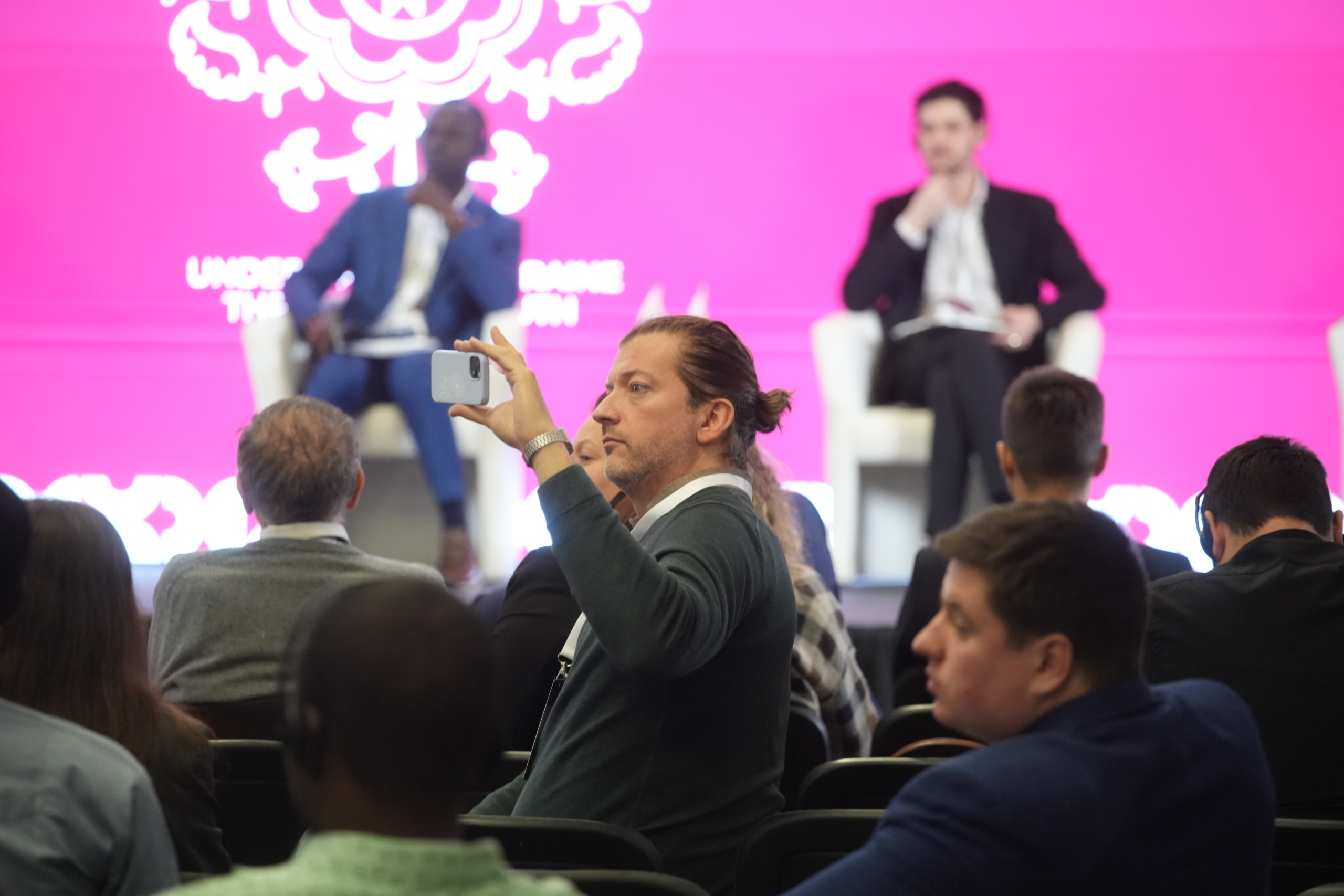
Uriã Fancelli said that the people of his country sympathise with Russia because it actively promotes its own interests: “Russia is using the polarisation of the Brazilian population very well. We have a very polarised society, the “left” is constantly fighting the “right”. The Russians know how to use the “left”. President Lula da Silva is a representative of the left. Therefore, the Russian position is partly mainstream. The Russian ambassador is an extremely popular figure in Brazil. Only in October, the media mentioned him two hundred times. However, the media are not saints, they make mistakes, and so it is worth helping them to get better.“
Swasti Rao also spoke about the influence of the Russian propaganda press on the people of India. She stressed that the truth was the first victim of Russia’s aggression in Ukraine: “The same is true in my country, where news from Russian Sputnik is often reposted. My experience with Russian propaganda is similar to that of people from other countries. Firstly, from Russian theses: Russia is a victim, Ukrainians are cousins of Russians, and Russia wants to unite the brothers, while the West is against it. Secondly, it seems that Russia’s economy is doing well, although I personally researched this, and most of the data is classified, and this is not just for show. The Russian economy is in a major crisis. Russia also claims that Crimea has always been Russian, and this propaganda is successful in India because Russia uses an analogy with the history of Kashmir. They have completely different histories, it’s apples and oranges, but Russia compares them and pushes its propaganda in this way. Ukraine needs to stop this, to show that Crimea is not like Kashmir, they are different.“
Soviet heritage
Another topic discussed at the conference was the legacy of the Soviet Union in Latin America, Africa and Asia – should Ukraine claim a share of it? Political Expert Oleh Bielokolos said: “Historical relations emphasise Ukraine’s long-standing role in supporting the development of African countries. While it is easy to focus on the contribution of the entire USSR, Ukraine’s unique industrial and logistical capabilities have played a critical role in establishing these partnerships. So, when we discuss Ukraine’s position today, it is important to remember this legacy of cooperation and mutual benefit.“
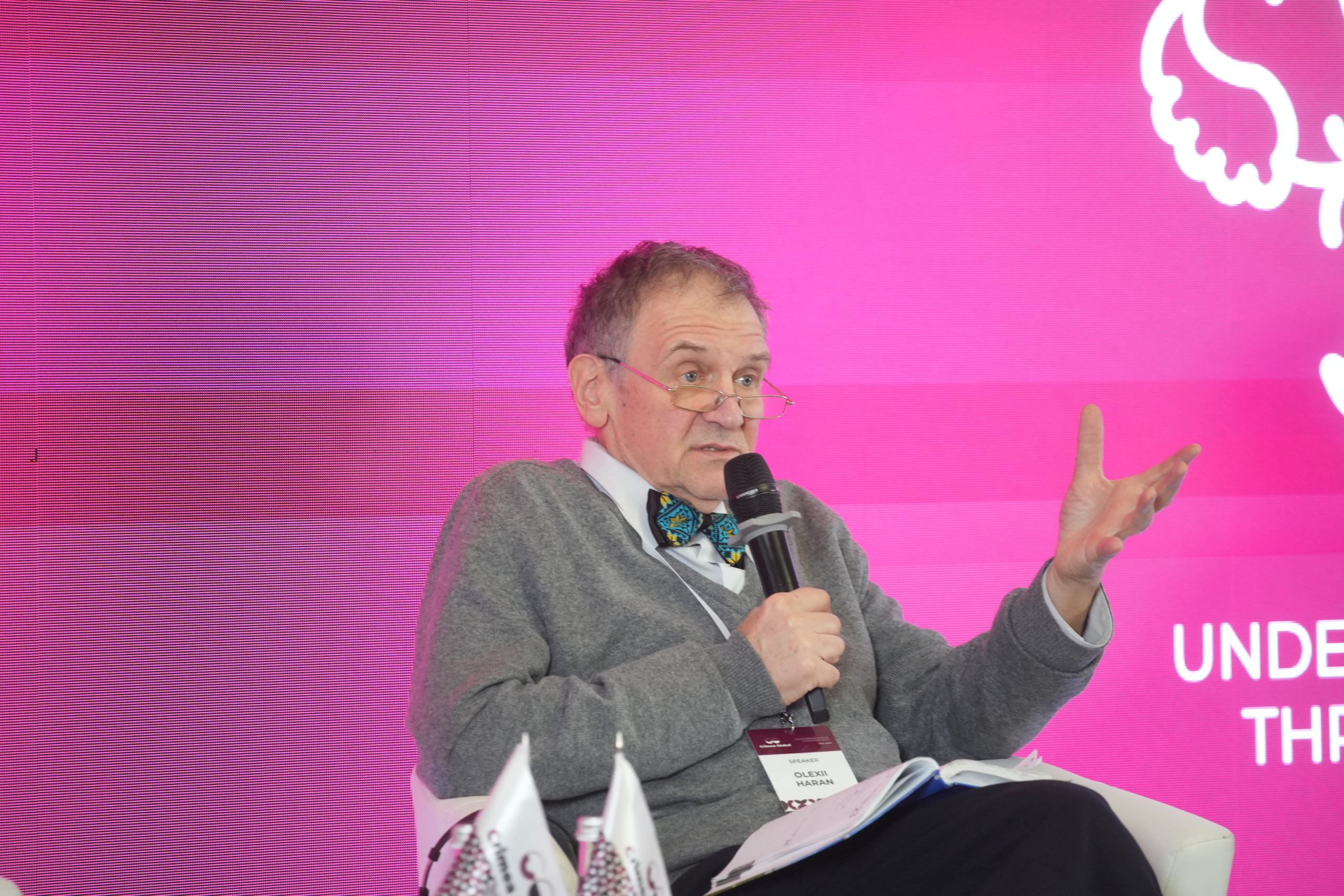
Oleksii Haran, Professor of Political Science at Kyiv Mohyla University, stressed that foreigners need to be educated about Ukraine’s role in the Soviet Union, emphasising that modern Ukraine is not responsible for the crimes of the USSR, including the war in Afghanistan or support for communist regimes in Africa. He noted that these issues should be presented sensitively, given the positive image of the USSR in many countries, but at the same time emphasise the facts that show Ukraine as a victim of Soviet imperialism.
At the end of the last day of the International Conference, Tetiana Pechonchyk stressed the special significance of the days of the event for Ukraine. “These days there were many dangers all over Ukraine, and yet this is an outstanding moment in our history because yesterday and today are the anniversaries of two revolutions – the Orange Revolution in 2004 and the Euromaidan in 2013″, reminded Pechonchyk. “Everything happened then thanks to the courage of people, including those who were not afraid to come to Ukraine despite all the risks and your passion for discovery – for the discovery of Ukraine. These days we had a very busy programme. We took part in six-panel discussions, there were parallel events, evening events, six photo exhibitions, and we also invited participants to write letters to political prisoners – “Letters to a Free Crimea” – which we will send out. In addition to these two days, there were also regional events – participants travelled to Chernihiv, Kyiv, and Odesa regions – and I hope this also expanded their knowledge and understanding. I would like the conference to take place next year as well.“
If you have found a spelling error, please, notify us by selecting that text and pressing Ctrl+Enter.

